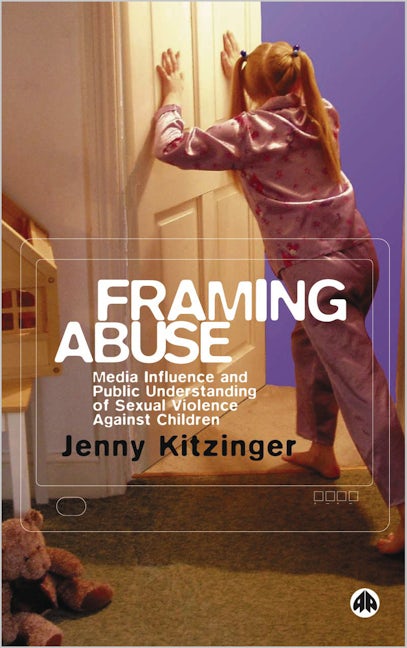
Framing Abuse
Media Influence and Public Understanding of Sexual Violence Against Children
How does the media shape the way we think about child sexual abuse? Combining in-depth analysis of media representations of the crimes, with focus group discussions and interviews with around 500 journalists, campaigners and a cross-section of 'the public', Jenny Kitzinger reveals the media's role in contemporary society.
Which stories attract attention and why? Answering this and other questions, Kitzinger demonstrates how media reporting can impact on people's knowledge of the 'facts', perceptions of risk, sense of appropriate policy responses and even how we interpret our own experiences. Looking at feminist initiatives to challenge sexual violence, the emergence of incest as a social problem and the development of new survivor identities. She also explores stereotypes around sex offenders,interrogates protests against 'paedophiles-in-the-community' and presents a detailed analysis of the impact of scandals about disputed abuse accusations.
This book is essential reading for anyone interested in theories of media influence, identity and social change or who wishes to encourage responsible journalism. It is also a key resource for anyone concerned about sexual violence and the protection of children or who is attempting to design intervention strategies.
Which stories attract attention and why? Answering this and other questions, Kitzinger demonstrates how media reporting can impact on people's knowledge of the 'facts', perceptions of risk, sense of appropriate policy responses and even how we interpret our own experiences. Looking at feminist initiatives to challenge sexual violence, the emergence of incest as a social problem and the development of new survivor identities. She also explores stereotypes around sex offenders,interrogates protests against 'paedophiles-in-the-community' and presents a detailed analysis of the impact of scandals about disputed abuse accusations.
This book is essential reading for anyone interested in theories of media influence, identity and social change or who wishes to encourage responsible journalism. It is also a key resource for anyone concerned about sexual violence and the protection of children or who is attempting to design intervention strategies.
Jenny Kitzinger is Professor of Media Studies in the School of Journalism at Cardiff University, and the author/co-author of several books on aspects of media studies, together with numerous articles.
1. Introduction
2. The Debate About Media Influence
3. Transformation Of Private And Public Discourse: The Media Discovers Sexual Abuse
4. Media Templates: Controversial Allegations and Analogies
5. Story Branding And The Role Of Empathy
6. Story Placing: Representing Localities, Landscapes and Communities in the News
7. Social Currency, Stranger-Danger And Images Of Abusers
8. Audiences As Activists: The 'Paedophile-In-The-Community' Protests
9. The Zero Tolerance Campaign: Responses To A Feminist Initiative
10. Conclusion
Epilogue: Implications For Journalists and For Child Protection
Appendix
Notes
References
Index
2. The Debate About Media Influence
3. Transformation Of Private And Public Discourse: The Media Discovers Sexual Abuse
4. Media Templates: Controversial Allegations and Analogies
5. Story Branding And The Role Of Empathy
6. Story Placing: Representing Localities, Landscapes and Communities in the News
7. Social Currency, Stranger-Danger And Images Of Abusers
8. Audiences As Activists: The 'Paedophile-In-The-Community' Protests
9. The Zero Tolerance Campaign: Responses To A Feminist Initiative
10. Conclusion
Epilogue: Implications For Journalists and For Child Protection
Appendix
Notes
References
Index
Published by Pluto Press in Aug 2004
Paperback ISBN: 9780745323312
eBook ISBN: 9781783715633
eBook ISBN: 9781783715633
Read on any device

